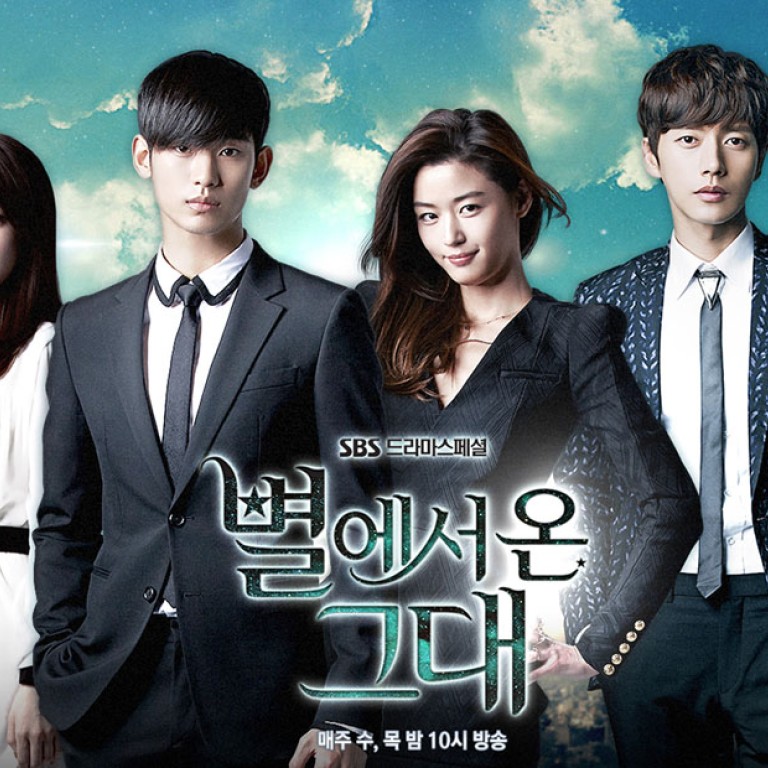
Wang Qishan draws lesson from craze for Korean drama, but Chinese media split on what that lesson is
Media scramble to interpret Wang Qishan's remark about Korean drama's success and what China can learn from it
A highly popular Korean drama is all the talk at the annual legislative meetings in Beijing.
"Have you all seen that trendy online drama called … something star?" Wang Qishan, China's anti-corruption chief asked, referring to the Korean drama during a panel discussion with National People's Congress delegates.
Met with silence, the 65-year-old Wang said, "You see? None of you officials know it," prompting a burst of laughter from the room, according to a report by newspaper on Wednesday.
about a woman's romance with an alien, has developed a cult following in China. The show, broadcast on two Chinese video websites, is searched for by more than two million people a day and has been watched 14.5 billion times on just one of the sites.
Korean restaurants across China have also seen a surge of customers, thanks to the show. Some rushed to introduce a dish of fried chicken, pickled radish and two bottles of beer, a combo the female star eats in the show.
"I've been wondering why Korean dramas have [charmed] Chinese. How can they cross the ocean and influence the US and even Europe? In the past few years, they come out with a Gangnam Style," said Wang.
"The core and spirit of Korean dramas is the exact sublimation of [their] traditional culture. They use TV dramas to disseminate [Korean] traditional culture," he said.
Wang, ranked No6 in the Politburo Standing Committee, the Communist Party's top decision-making body, is also a fan of the US political drama about scheming politicians in the White House, according to Hong Kong-based magazine
Given Wang's prominent position, local media have tried to interpret his remarks from different angles.
"Wang made the remarks by interrupting complaints about the theatre market's downturn from [ Zhang Heping,] head of the state-owned Beijing People's Art Theatre. He was making a criticism in a euphemistic way," it said. "The cultural officials should make greater effort to explore the core and soul of Chinese traditional culture. Why can't Chinese dramas achieve the same success as those from Korea?"
The blamed China's backward cultural bureaucracy and censorship for the failure.
"Behind the Korean shows' craze is Korea's successful cultural system. Ours lags far behind with approval procedures that are far too critical," it said.
Ironically, both and are shown only online in China, where censorship is looser than on satellite TV channels. Local producers complain that a locally made version of would never be approved.
Some media believed Wang's remarks were meant to encourage government officials to be open-minded and engage more actively with the young online community.
"It's impressive that a senior official like Wang is sensitive to the hot social issues and is open to new things," said the Shenzhen-based
"The leadership has been talking about overall reforms. [Officials] must pay attention to new things and research them more thoroughly if they want to push forward reforms in the right way and with a new mindset," the newspaper said.
Wang has used the internet actively in anti-corruption campaigns. Under him, the party's Central Commission for Discipline Inspection (CCDI) has used the internet as a major platform to release information and collect tips.
"Officials must listen to and engage more with internet users. But some of them would still rather take a deaf ear on that," said a commentary in the
